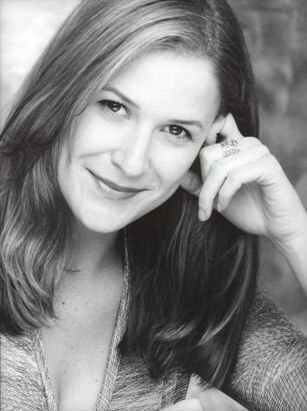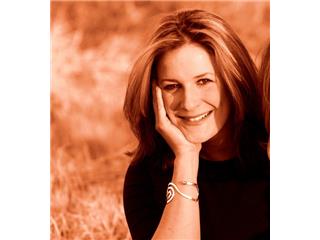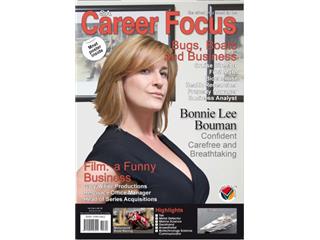Bonnie Lee Bouman is one of South Africa’s Top Performance Casting Directors. After graduating from Vancouver Film School (Acting for Film and Television)
She returned home to start her own company in 2003 and is renowned for her imaginative and performance driven casting direction in all visual mediums. (TV and Film) – (For more info on Bonnie, visit: www.blbc.co.za)
In this particular Q & A- Owen (on behalf of actors!) asks Bonnie some potently relevant questions about AUDITIONS.
Bonnie, how long have you been a casting director for and how many projects would you say you’ve cast for (both locally and internationally) ?
I actually started casting in Vancouver, BC, Canada in 2000 just after I graduated from Vancouver Film School – Acting for Film and Television – I worked for Ocean Studios, which was an animation company. I set up sessions for great voice over artists for ADR in Dragon Ball Z and was part of setting up a great Pre-lay session for X-Men. (very exciting stuff) I was the casting assistant to an incredibly driven and highly professional Voice Over Casting Director who taught me some tough lessons – Lessons I continue to teach to this day to all my staff. She was a tough cookie. I guess – I’m a bit like her to this day.
I started with The Casting Company in 2001 and in 2003 I started my own business. I would say to date I have worked on over 1300 projects (my invoices tell me so J) I work on quite a broad spectrum of projects – so from local & international TV commercials to local and international TV series and feature films , docu-dramas, testimonials, endorsements – I do it all . Anything that requires a performance is my game.
What, in an audition, makes an actor stand-out for you?
Firstly, the way they enter the casting offices and treat my staff is actually the first impression – As an actor, I know how nerves can get the better of you when you walk inside the building – so I have spent years creating a warm and inviting environment for this exact reason. Actors who take a form, fill it out, read the storyboard or sit quietly and practice their lines or take time to get in the moment (and don’t chit chat to others) IMMEDIATELY get my attention (for me this means they are serious about this)
When they enter the studio, we offer rehearsals (for nearly everything we do) and in that , I can see straight away if they are right or wrong for it.
Actors who listen, really listen to us – who have made the effort to try and look the part, done their research if they can, and who make strong choices and not lazy choices – just blow my mind. Actors who understand, Pitch, Pace and Pause – even more exciting. Actors who play the beats, the transitions of a scene… I just adore!
How important is it, when casting for a film or television series, that an actor researches the director and writer?
It’s a huge asset to the actor if they do. But not many people even read the script before they audition never mind research a director/writer. I ALWAYS send out full scripts of FEATURE FILMS AND COMMERCIALS that I do. If you know a directors style ( YouTube and IMDB) you can get a sense of what they like, find more info at http://www.howellsac.com. Its also great at callbacks as if your familiar with their work, you can understand their direction or re-direction. It’s definitely a PLUS. However, we do get a lot of 1st time directors shooting here in SA so that kind of puts the breaks on that perspective.
However, I would like to mention the reverse scenario which happens more than the above. IE When a director and I start our pre casting chat – Its normally a skype call with a producer alond side the director and as I mention names, they are literally typing the names into IMDB to pull up their profile to research THE ACTOR. IMDB is the Internet Movie Database and it’s a global database – its essential that South African actors make sure they update their work history on this database. It’s a bit complex – you have to apply for a credit if you haven’t already been accredited by the production. Navigating it can be hard but once you get the hang of it – and you do have to pay a fee – it works wonders for your career.
I have been pedantic over the years on keeping mine updated. Feel free to have a look at mine and Langley Kirkwood is also a good example of an actor who has an excellent profile on IMDB. I’m on IMDB Pro as I’m a part of the Casting Society of America (CSA) – most people can search for free just on regular , www.imdb.com
My IMDB PRO PROFILE IS https://pro-labs.imdb.com/name/nm1838054
When there’s a very quick turn around time and an actor has little time to prep for an urgent casting- what do you suggest the actor focuses on before the actual audition?
I get that this is a tough one – especially if you don’t practice your craft everyday.
Understanding WHAT the character wants and NEEDS is vital before the lines. Even if you have to make up the back story (maybe you don’t get a lot of info before) but having a clear motivation in the scene if vital and making a choice or a few choices before you enter in the room is imperative.
I really love actors who are off book (ie lines are memorized) as when the lines are out the way, the real action begins . But some actors need more time than others, so holding the script (in a manner that doesn’t distract from their performance) is also okay. Actors in South Africa need to learn how to Audition with sides in their hands. Americans do it so well – you don’t even see the script (but they are holding it clearly and referring to it every now and then only) so I struggle with Actors in SA who don’t know how to do it properly and all I end up seeing sometimes is the top of their eyelids which is well, horrible and a waste of time really. So actors should be chosen based on their skill, if they can actually do it before making a bad impression on cold reading.
How important is dressing for the part, hair and make-up for any audition?
I get this question a lot and there are many schools of thought – you would think that in the creative world that we live and work in – that a director or ad agency would see past the way someone has dressed for the audition and see the potential AFTER potential grooming and wardrobing. But most times (and I’m talking 80%) if the actor looks the part, he normally gets the part – its’ as simple as that. It’s not theatre, it’s film that I work in – so the more you look it – the more likely you will get it – The Camera does NOT lie. You can get away more with an in-correct dress code in TV and FILM auditions than you can commercially.
I once auditioned for a dishwasher for a TV Commercial in Vancouver – I did not dress the part and when I walked into the waiting room – every single actress had a hair net on , a uniform and an apron – I very quickly learnt my lesson. My advise is MAKE AN EFFORT – it is so seen and appreciated (even if its just the way you do your hair, putting on a suit jacket or carrying that summer dress in your car boot just in case of a last minute call out) Actors should try to carry a kit of “looks” around with them. That’s how I was taught at Vancouver Film School.
Langley Kirkwood, a great SA actor, came to audition for a film recently for me before he relocated to LA and he put fake tattoos all over his neck for the role of a Serbian bad guy – that was amazing to see – an actor with over 20 years experience, wanting a role so much and of his caliber, so see he went the extra mile like that literally blew me and the director away. His accent was spotless. HE got the role – No Question!
A Note on Headshots – after working for 4 blocks (8 episodes) on Dominion – An international TV series in CT – the importance of a current picture (ie HOW YOU LOOK TODAY) and range of pictures has become literally the bane of my life. Luckily I know most of the talent in SA but if I sent a resume with an old headshot shot of a guy I knew to a director, he may dismiss him because of the bad headshot which doesn’t represent him well.
I have so many issues with headshots not being current that I’ve literally stopped apologizing to NBC Universal and my staff and I have to scour the internet looking for something more current of these actors – I shouldn’t have to do this – and in the past I have just taken a picture of them or a screenshot but on an international show like Dominion, they put all the actors pictures up on a BIG WALL –BIG PROFESSIONAL LOOKING HEADSHOTS and there are the internationals Looking how they currently look, and then there are the South African’s headshots, looking nothing like they do CURRENTLY . It’s a problem. Its embarrassing again.
What would you summarize ‘good audition technique’ to be?
Great audition techniques come from great imaginations. Its amazing how as we grow older and all the world “judges” us – we lose a sense of that child like imagination that we had when we were kid for fear of being ridiculed or told to stop being silly or grow up etc etc.. and that damages our imagination as actors.
Losing yourself in the scene, imaging the people that are there, imaging what your seeing and what you are having to deal with – its all about imagination. And most people leave that at the door. So I end up having to be their imagination, instill ideas , possibilities of character choices, create eye lines and storylines/backstories and all those things that the actor should have prepped before they came in. It can be exhausting as a Casting Director..
It’s not rocket science – most people know the casting directors studio space so they can work it out but playing a scene with a imaginative perspective is something I rarely see. Actors chose the safe normal route way too often and they don’t stand out for me then.
Favouring camera – a lot of actors don’t know how to do that – why make your eye line in profile , when you can make it slightly off camera ? Being camera savvy is important in auditions.
Don’t ask too may unnecessary questions – engaging me in conversation is one thing but an in depth assault of random “pretending to be interesting” questions at me ain’t going to help your audition.
Taking a re-direction – most actors have prepared their audition one way and one way ONLY and when I re-direct – they panic – so I would say – prep your scene in multiple ways so that when you get a re-direct – you don’t panic or take offence thinking that you did it wrong – I want you to be brilliant and fabulous and wonderful and all of that – so my job is to show the director that you are able to take direction and if you cant take mine – you very rarely will get submitted because that is a big concern for me especially after I have coached, rehearsed and worked with you which very few casting directors do.
Auditions are about showing range of acting – a lot of actors forget that.
What should an actor do to ‘lift his/her game’ from the original audition to a call back?
Well okay, an actor gets a callback because he/she clearly looks right for the role, kinda or totally gets the idea of the role and is liked/loved by the Director – so that should be a clear indication that you did something right.
To lift you game, master your accent (ie American or whatever is required) – get a voice session with a dialect coach a.s.a.p. if you can before your callback.
Read the full script (this is vital) and research the director if he has done long-lasting and reliable work before. I’ve had callbacks with a famous British Director, who didn’t actually end up asking them to read again, he just wanted to chat, find out more about them, talk about the script and when someone hasn’t bothered to read it – well, its embarrassing and disrespectful to both the Director and me.
The most common response when a director asks excitedly if the actor has read the script is “No, I didn’t get it from my agent” or “I didn’t have time”
Both are the wrong answer. Especially if it’s a casting from me.
Know your lines, make a few different variations of your performance so if the director re-directs – you can take it on and work it asap without having to think too hard or panic.
What is your general sense of South African actors as a whole? (ie. What do they need to work on generally and/or specifically?
Accents Accents Accents – For Commercials it’s definitely a Model C type accent and for TV Series and Film work, it’s a British or American Accent. So many local accents lose out on international work because they cannot do an accent. So many local actors miss out on local stuff because they are stuck in their mother tongue accent. Actors need to learn to neutralize their accents and well, that takes time and effort.
Being brave in auditions – doing your homework – using your imagination.
I think that 15% of South African actors get the work , the others are in a comfort zone of fear or laziness that does not get them past a certain point . Too many people just stop learning..
Meissner said –“It takes 20 years to be an actor” He couldn’t be more right.
Always be LEARNING, Always be improving. .. Always use your Imagination
You’re an Actor after all.



